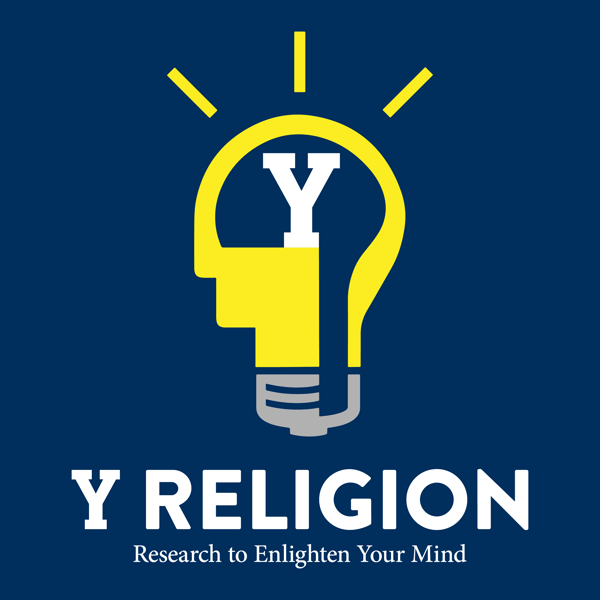Episode 114: Learning from People of Other Faiths (Joshua M. Sears)
Y Religion
BYU Religious Education
4.8 • 1.7K Ratings
🗓️ 15 October 2024
⏱️ 57 minutes
🧾️ Download transcript
Summary
Since the organization of the Church, leaders have called for world-wide religious liberty and harmony: “We claim the privilege of worshiping Almighty God according to the dictates of our own conscience, and allow all men the same privilege, let them worship how, where, or what they may” (Articles of Faith 1:11). In this episode, Dr. Joshua M. Sears, associate professor of ancient scripture, details how we might answer the prophetic call to not only love and respect people of different faiths but to also learn from them. He discusses the importance of adapting trustworthy interfaith resources into our spiritual lives. Additionally, he details how to locate and evaluate reliable resources, and describes one ecumenical resource, BibleProject, as an example. Without diluting our doctrinal uniqueness or missionary mandate, we can build strong relationships with our religious neighbors and learn from the truth that is “scattered liberally across the globe” (Elder Christofferson).
Publications:
- “Learning from People of Other Faiths” (Religious Educator, 24.2, 2023)
- Covenant of Compassion: Caring for the Marginalized and Disadvantaged in the Old Testament (Religious Studies Center, 2021)
- “Study Bibles: An Introduction for Latter-day Saints” (Religious Educator, 20.3, 2019)
- “Deutero-Isaiah in the Book of Mormon” (Y Religion, episode 86, 2023)
- “Study Bibles for Saints” (Y Religion, episode 35, 2021)
- BibleProject Videos: https://bibleproject.com/explore/
Click here to learn more about Joshua M. Sears
Transcript
Click on a timestamp to play from that location
| 0:00.0 | Hello, why religion friends. John Hilton here. I've mentioned previously on this |
| 0:05.4 | podcast about an experience I had in Jerusalem when I was eating lunch with some |
| 0:10.2 | colleagues and I realized for the first time that I really didn't know that much about the historical |
| 0:15.5 | realities of Roman crucifixion. Yes I had read the Gospels and I'd read Jesus to Christ, but I wondered to myself, what could modern scholarship teach me |
| 0:26.2 | about the act that Jesus Christ himself defined as his greatest act of love? |
| 0:32.4 | The answer to that question turned out to be quite a lot. |
| 0:35.0 | I found an 800-plus page book written by a faithful Protestant that included |
| 0:40.7 | translations of every ancient document that discussed crucifixion. |
| 0:45.6 | I also found a two-volume series, totally more than 1,500 pages, called The Death of the Messiah by Catholic scholar Raymond Brown. |
| 0:56.2 | In this magisterial work, Brown goes verse by verse through the gospel accounts of the Savior's |
| 1:01.4 | death, synthesizing the work of hundreds of |
| 1:04.8 | scholars across the centuries. These books, as well as many others, significantly |
| 1:10.5 | deepened my understanding of the saving significance of the Savior's death. |
| 1:16.2 | The First Commandment isn't just to love God, it's to love God with all thy heart and with |
| 1:21.0 | all thy soul and with all thy mind. |
| 1:25.1 | In other words, I found that there can be great value in learning from modern scholars. |
| 1:30.4 | I'll be honest though, in the past I've been a little nervous to study scholarship because I thought what if what I read isn't true |
| 1:37.3 | Scholars make mistakes and that's a valid concern |
| 1:41.1 | Two different scholars might look at the exact same data and disagree |
| 1:45.1 | about what it means. Scholars can get things wrong and, like all of us, have biases. |
| 1:50.3 | That's a legitimate danger with scholarship, but it doesn't mean we should ignore it. |
| 1:55.6 | There is so much we can learn from others. |
... |
Please login to see the full transcript.
Disclaimer: The podcast and artwork embedded on this page are from BYU Religious Education, and are the property of its owner and not affiliated with or endorsed by Tapesearch.
Generated transcripts are the property of BYU Religious Education and are distributed freely under the Fair Use doctrine. Transcripts generated by Tapesearch are not guaranteed to be accurate.
Copyright © Tapesearch 2025.

